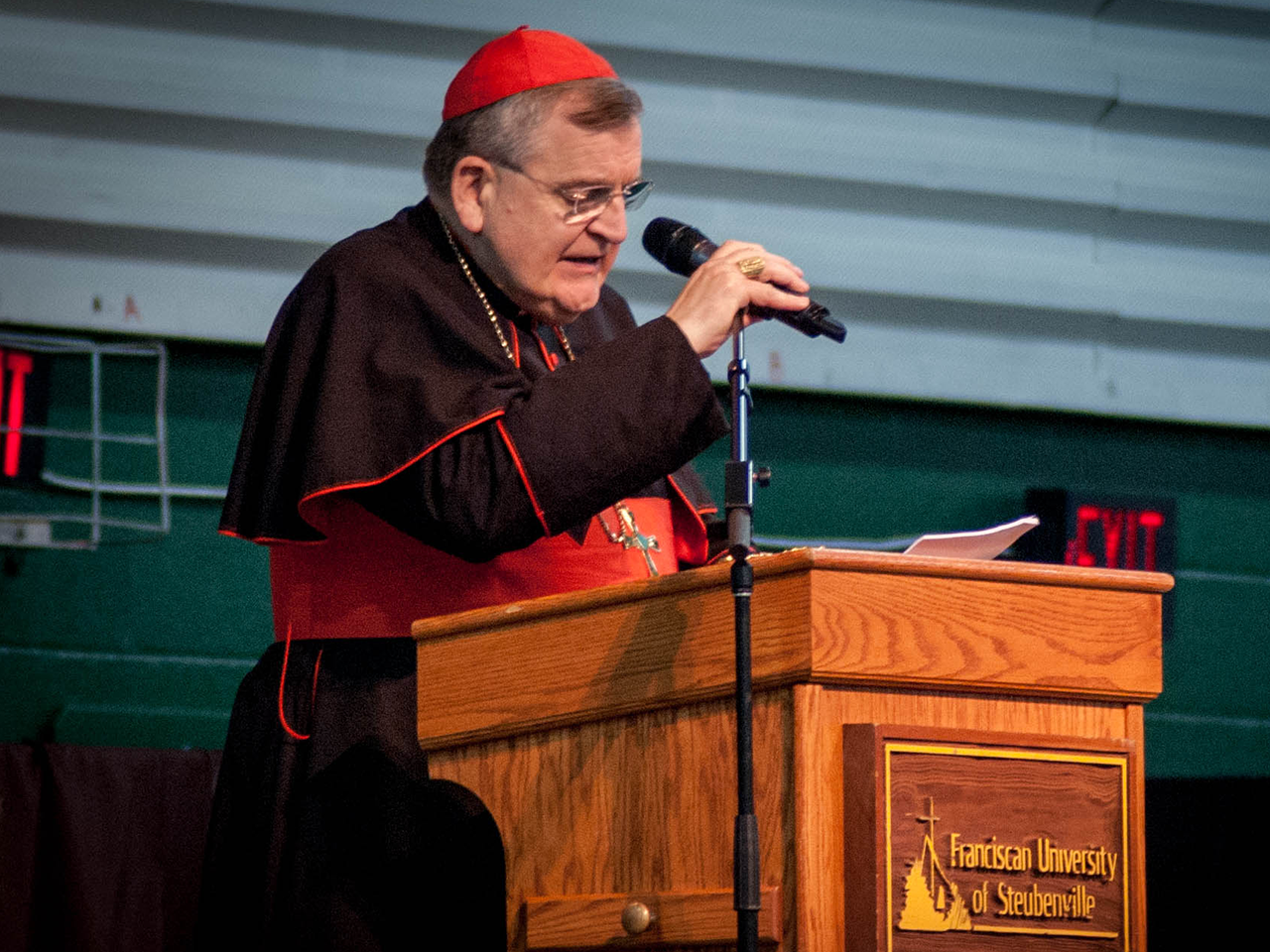Yesterday, I published an excerpt of Cardinal Burke’s interview with Catholic Action. At the time of publication, I had not yet seen his separate interview with Edward Pentin, in which he took an even firmer stance.
The importance of what is being said here can’t be understated. Again, I will highlight several important passages:
Are you hearing this concern about confusion [concerning Amoris Laetitia] a lot?
Everywhere I go I hear it. Priests are divided from one another, priests from bishops, bishops among themselves. There’s a tremendous division that has set in in the Church, and that is not the way of the Church. That is why we settle on these fundamental moral questions which unify us.
[…]
Some will see this initiative through a political lens and criticize it as a “conservative vs. liberal” move, something you and the other signatories reject. What is your response to such an accusation?
Our response is simply this: We are not taking some kind of position within the Church, like a political decision, for instance. The Pharisees accused Jesus of coming down on one side of a debate between the experts in Jewish Law, but Jesus did not do that at all. He appealed to the order that God placed in nature from the moment of creation. He said Moses let you divorce because of your hardness of heart, but it was not this way from the beginning. So we are simply setting forth what the Church has always taught and practiced in asking these five questions that address the Church’s constant teaching and practice. The answers to these questions provide an essential interpretative tool for Amoris Laetitia. They have to be set forth publicly because so many people are saying: “We’re confused, and we don’t understand why the cardinals or someone in authority doesn’t speak up and help us.”
It’s a pastoral duty?
That’s right, and I can assure you that I know all of the cardinals involved, and this has been something we’ve undertaken with the greatest sense of our responsibility as bishops and cardinals. But it has also been undertaken with the greatest respect for the Petrine Office, because if the Petrine Office does not uphold these fundamental principles of doctrine and discipline, then, practically speaking, division has entered into the Church, which is contrary to our very nature.
And the Petrine ministry, too, whose primary purpose is unity?
Yes, as the Second Vatican Council says, the Pope is the foundation of the unity of the bishops and of all the faithful. This idea, for instance, that the Pope should be some kind of innovator, who is leading a revolution in the Church or something similar, is completely foreign to the Office of Peter. The Pope is a great servant of the truths of the faith, as they’ve been handed down in an unbroken line from the time of the apostles.
Is this why you emphasize that what you are doing is an act of charity and justice?
Absolutely. We have this responsibility before the people for whom we are bishops, and an even greater responsibility as cardinals, who are the chief advisers to the Pope. For us to remain silent about these fundamental doubts, which have arisen as a result of the text of Amoris Laetitia, would, on our part, be a grave lack of charity toward the Pope and a grave lack in fulfilling the duties of our own office in the Church.
Do you see this? It means that your concerns are being heard. I think the comment I’ve heard most often since all of this began is this: “Where are the Cardinals and bishops? Why are they not defending the faithful? Why are they not challenging this?” Well, now they are.
And here’s where the rubber meets the road:
What happens if the Holy Father does not respond to your act of justice and charity and fails to give the clarification of the Church’s teaching that you hope to achieve?
Then we would have to address that situation. There is, in the Tradition of the Church, the practice of correction of the Roman Pontiff. It is something that is clearly quite rare. But if there is no response to these questions, then I would say that it would be a question of taking a formal act of correction of a serious error. [emphasis added]
This is it, folks. The beginning of the big push. Cardinal Burke does not say how many prelates back them but have not signed the document. That said, he also contends that it doesn’t matter that they are only a few:
Some might argue that you are only four cardinals, among whom you’re the only one who is not retired, and this is not very representative of the entire Church. In that case, they might ask: Why should the Pope listen and respond to you?
Well, numbers aren’t the issue. The issue is the truth. In the trial of St. Thomas More, someone told him that most of the English bishops had accepted the king’s order, but he said that may be true, but the saints in heaven did not accept it. That’s the point here. I would think that even though other cardinals did not sign this, they would share the same concern. But that doesn’t bother me. Even if we were one, two or three, if it’s a question of something that’s true and is essential to the salvation of souls, then it needs to be said.
Amen to that. Pray for these men. They are up against forces beyond our imagining. Our Lord and Our Lady are on their side, but we need to be, too.


